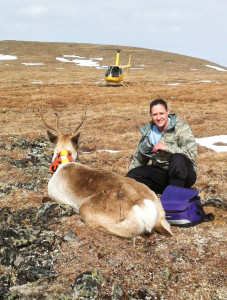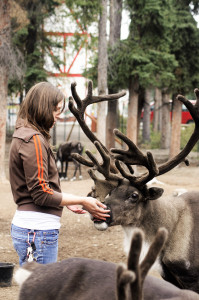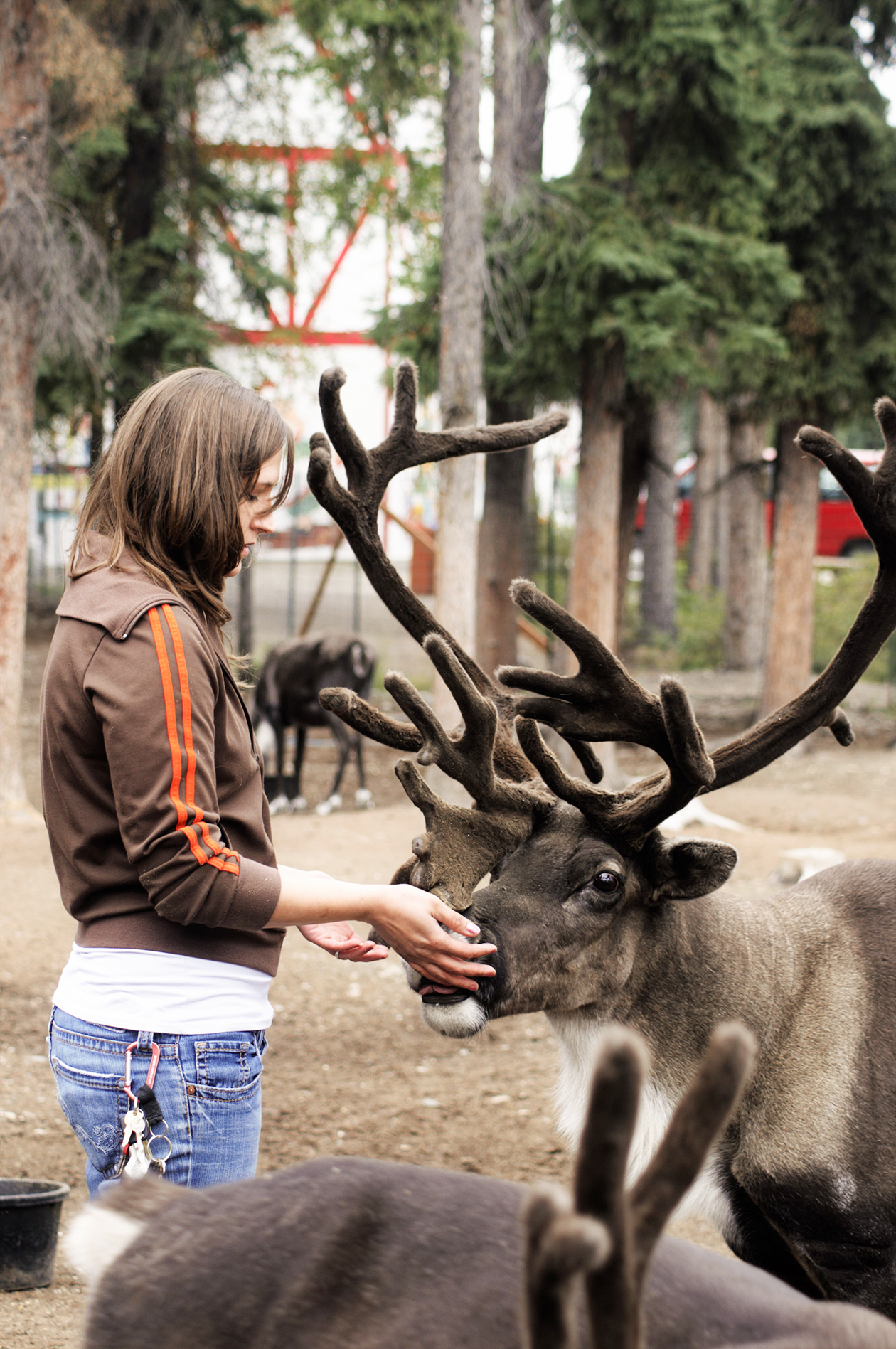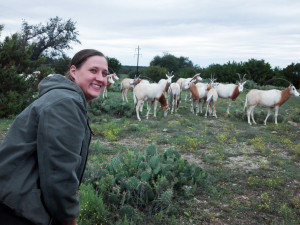By BETHANY SHERROW
Features Editor
(WARRENSBURG, Mo., digitalBURG) — You’ve probably heard of Bruce Willis, but have you heard of Bruce Quillis?

PHOTO SUBMITTED BY DAWN PAULING
Dawn Pauling feeds a reindeer in August 2010 in North Pole Alaska. Pauling was the caregiver to four adult male reindeer.
Quillis is a hedgehog and just one of UCM instructor Dawn Pauling’s many pets.
“We have a crested gecko, we have three goats, four dogs, two cats, and we have endless amounts of birds,” Pauling said. “ I can’t even start to think about how many I have; tons and tons of chickens, I have some turkeys and lots of ducks.”
Pauling lives in the country, and her family runs a small farm where they strive for self-sufficiency.
“We’ve got chickens and eggs that we grow on our own, and we actually hatch the eggs and everything,” Pauling said. “We still have a lot of things to work toward to where we don’t have to purchase anything from the outside and can maintain everything at our house.”
They’ve almost reached that point.
“We’re getting there,” she said. “But, I’ll never be 100 percent self-sufficient because I have to use a car to get to work, unfortunately. I don’t think that it is possible for me with my lifestyle to be 100 percent self-sufficient, but we’re working on at least getting 80 percent.”
Pauling said that being self-sufficient is a lifestyle that she and her family chose and that it is a lot of hard work – that’s one of the main reasons people aren’t attracted to it.
Growing up on a farm, Pauling said she’s always been exposed to the country lifestyle.
“We were definitely resourceful, and I was always exposed to how we got our food, and it wasn’t just going to the grocery store,” she said. “I think that’s helped me with pushing toward self-sustainability now with my own family.”

PHOTO SUBMITTED BY DAWN PAULING
Dawn Pauling feeds a reindeer in August 2010 in North Pole Alaska. Pauling was the caregiver to four adult male reindeer.
Pauling said anyone is capable of living an environmentally conscious life, but it all begins with recycling.
“I think anybody who wanted to go that route, as long as they did one small thing to become more environmentally conscious, it would help them in the right direction,” she said.
Pauling’s interest in being environmentally conscious really peaked through her college career. She studied wildlife biology and conservation at the University of Alaska Fairbanks. She also worked at the Alaska Department of Fish and Game and interned at Wildlife Veterinary Services.
During her time in Alaska, Pauling did a lot of fieldwork such as testing copper levels in caribou livers, studying behavior in captive reindeer and conducting chemical mobilizations in wolves.
Pauling said she loved doing fieldwork, but that she found a new passion in teaching. After earning her Master of Science in biology degree at UCM, Pauling became a full-time instructor on campus in spring of 2015.
“It’s funny because I never saw myself taking this path because all of my background has been working in the field,” Pauling said. “Once I started teaching, I realized that I could actually help these students. I’ve actually had a lot of students coming to me for research mentoring and stuff like that because now I can use those experiences that I had in the field to guide these students. And, because I had those experiences, I’m able to do that. It is very rewarding.”
She said that while she enjoys going out in the field and mentoring majors, teaching non-majors ecology is one of her favorite classes, because she gets to change some students perspectives on the environment and nature.
“That is the big thing in ecology – if you just stop and you look at it and you think about it and realize how much we are a part of this world,” Pauling said. “It’s almost like we separate ourselves, but we’re a part of this world. Our actions do matter.”




Leave a Reply